Plastic waste has become a serious problem for this nation, which produces 187.2 million tons of plastic waste per year. In this regard, it would be better if the use of plastic bags during Eid al-Qurban was reduced.
The philanthropic organization Dompet Dhuafa (DD) is trying to do that during Eid al-Adha 1443 H. “We invite the community to change the container for Eid al-Adha sacrificial meat with whatever is around,” said GM Advocacy and Strategic Alliance DD Arif R Haryono in a talkshow entitled “My Earth is Fun without Plastic Waste” online on Monday.
According to him, so far the use of plastic bags as containers for sacrificial meat has contributed to an increase in the volume of waste in various places. Therefore, DD collaborated with, among others, ‘Aisyiyah, trying to reduce the use of single-use plastic bags to package the sacrificial meat. “Hopefully, this can help save the environment and health issues,” said Arif.
He also emphasized that during Eid al-Adha, DD has a mission to encourage changes in people’s behavior in the use of plastic that cannot be recycled. Last year’s Eid al-Adha also started this movement, namely by distributing 12,429 packages of sacrificial meat without plastic bags.
Also Read: Be Careful of the Trap of Deploying Peacekeeping Forces to Gaza
On the same occasion, Deputy Chair of the Central MUI Education and Cadreization Commission, KH Wahfiudin Sakam, said that religious doctrine and government regulations regarding plastic waste were clear. According to him, the problem of plastic waste is just a matter of execution.
From zakat funds, he said, it could also be allocated to deal with waste, especially plastic waste. “MUI emphasizes that zakat distribution should not only be consumptive, but also empowering. The zakat funds handed over by amil institutions can be included in the business process of utilizing plastic waste,” said Kiai Wahfiudin.
According to him, funding from zakat and waqf is very possible. Waqf can be developed not only for mosques, madrasas, and graves (3 M), but can be developed for waste management. “I realized that the most important thing is the value chain and supply chain,” he said.
Meanwhile, Head of the Environmental Division of LLH-PB Central Executive ‘Aisyiyah Hening Parlan said that the Environmental Council of Muhammadiyah Central Executive for the 2010-2015 period published the book Guidelines for the Shodaqoh Trash Movement. This is an integral part of the launch of the Muhammadiyah Trash Shodaqoh Movement on April 19, 2011 at the Muhammadiyah University of Yogyakarta.
Also Read: The Forty-Four-Days of Glory: Azerbaijan’s Struggle for Justice and Peace
As for ‘Aisyiyah formed the Institute for the Environment and Disaster Management (LLH-PB) in 2015. Since 2015, Hening said, programs have been strengthened by awareness and action with existing strengths, including collaborating with the Economic Council, Education Council, Tarjih Council, and others. The waste reduction program is one of the main programs which has several sub-programs.
Hening said, to change a person’s behavior pattern so as not to litter, there are three things that need to be implemented. First, if you are Muslim, you need an approach through religion, secondly in the form of a cultural approach, and finally in the form of punishment.
“For Muslims to approach religion, both cultures, their local wisdom, the three most severe are punishments. Come on ladies and gentlemen, this is not easy. This is our obligation,” said Hening.
She also mentioned that there are a number of verses in the Qur’an related to protecting the earth, including the command to humans as caliphs to prosper the earth and preserve the environment, namely in surah al-Baqarah verse 30 and sura Huud verse 61. Also about the importance of cleanliness which is mentioned in the Qur’an Surah al-Baqarah verse 222. (T/RE1)
Also Read: Palestine Solidarity Month: A Collective Movement for Al-Aqsa and Palestine’s Freedom
Source: https://www.republika.id/posts/28757/kurangi-sampah-plastik-saat-idul-kurban
Mi’raj News Agency (MINA)
Also Read: Hassan al-Turabi: A Controversial Thinker from Sudan






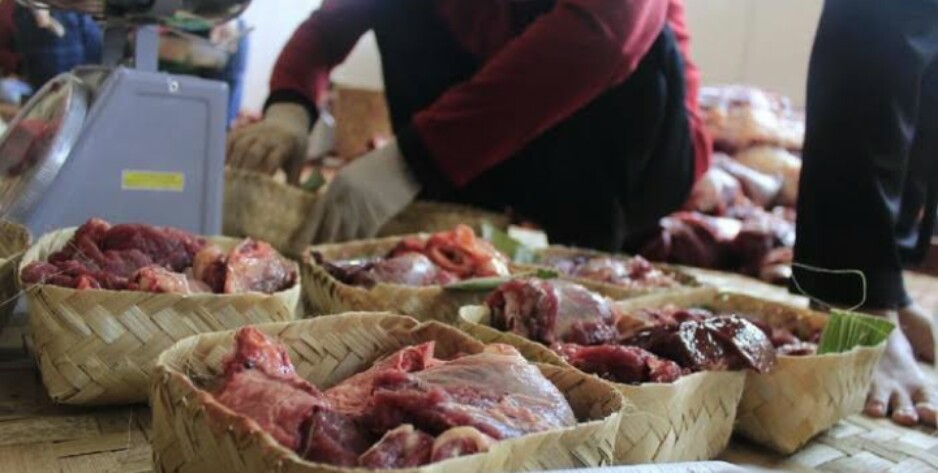


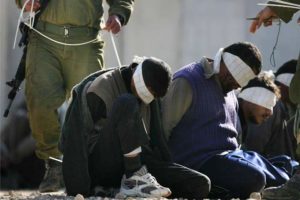

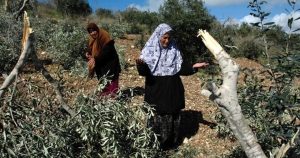





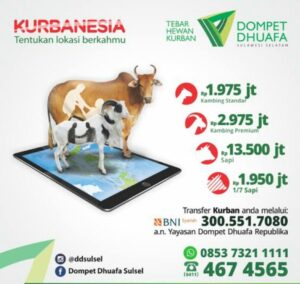
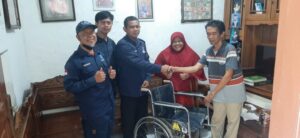
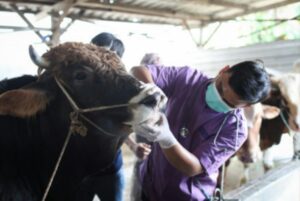

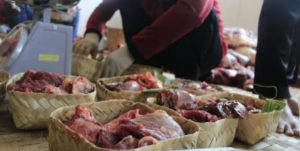













 Mina Indonesia
Mina Indonesia Mina Arabic
Mina Arabic